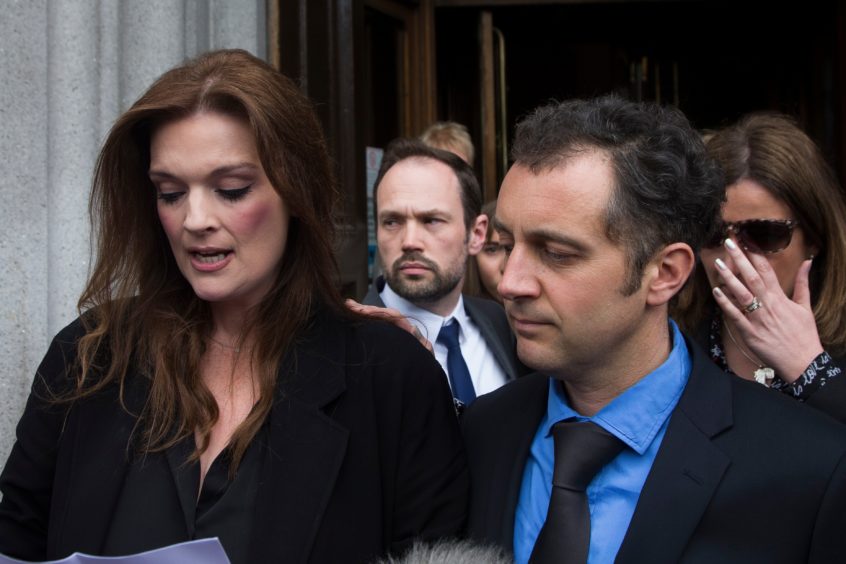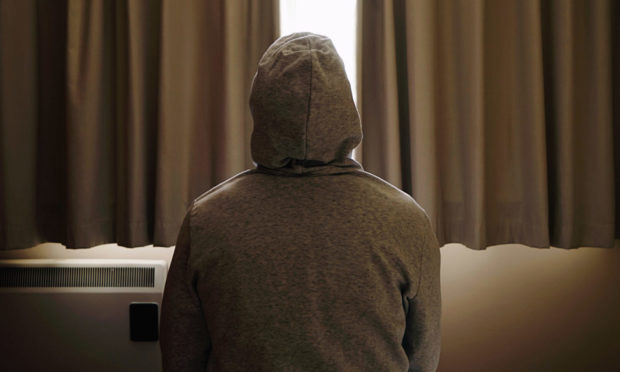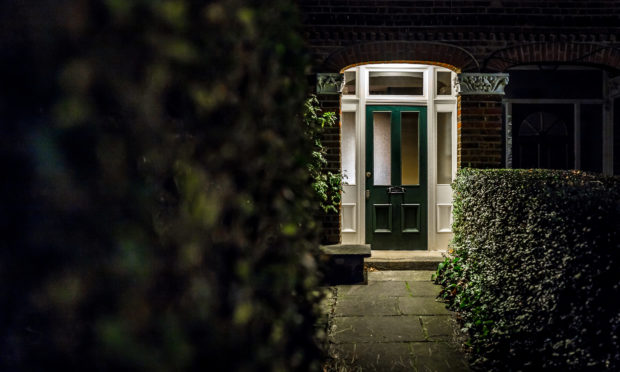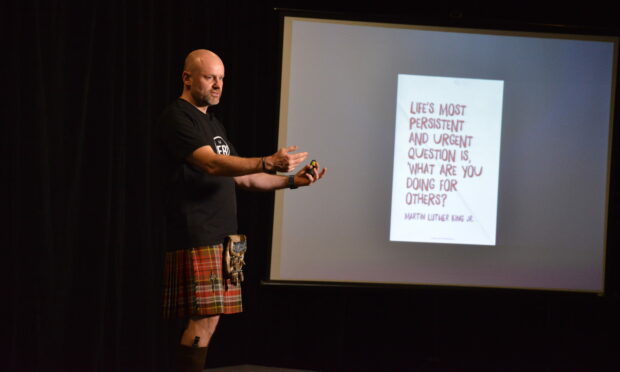
It was around 9pm on St Patrick’s Day in 2016.
Plastic shamrock bunting hung in bars across Aberdeen, underneath which groups of drinkers sipped on creamy pints of Guinness.
A few miles north of the city centre, 18-year-old student Emily Drouet was carefully applying green eyeshadow for the occasion.
Her friend was due round any minute with a bottle of wine for the pair to split before they headed off into town.
But when there was a knock on the door of Emily’s room at New Carnegie Court halls of residence, it wasn’t her friend with a cheap bottle of Echo Falls but Emily’s on-off boyfriend Angus Milligan.
He only stayed a few minutes but the short visit was enough to leave Emily with second thoughts about the planned night out.
It wasn’t unusual for Angus to be angry with her. Friends had seen aggressive messages Emily had received from him, calling her vicious names.
A couple of times he’d even stood in the courtyard outside her flat and publicly yelled “Emily Drouet from flat 86B is a slut and a whore.”
Knowing she would probably be upset by the visit, Emily’s friend hurried round.
She arrived with the wine 10 minutes later and spent several minutes fruitlessly knocking on Emily’s door and ringing her mobile. Puzzled at the lack of response, she left.
At midnight two of Emily’s flatmates returned from their own night out.
Stumbling into the flat, they rapped on the door of Emily’s room and dialled her mobile.
It wasn’t like Emily not to turn up, and besides, she’d assured her friends earlier in the evening that she’d be there.
They checked her Facebook but she hadn’t been active in several hours, which was unlike her.
The minutes ticked by in silence. Worried for their friend, they eventually called the building’s night porter for help.
The porter retrieved the key to Emily’s room and the heavy door swung open.
The trio were met by the sight of Emily’s lifeless body.
She had hanged herself.
Emily
At home on the south side of Glasgow, Emily was adored by her friends and family.
The eldest of three siblings, she took her role as older sister seriously.
“Emily was always teaching her brother and sister to bake and taking them out and about,” said Fiona, Emily’s mother.
“She’d prepare a huge picnic and the three of them would spend all afternoon at the park.
“That’s the kind of person she was, she loved making things special for other people.
“I always say she had a sparkle that just lit up the room when she entered.”
At 17 Emily received an unconditional offer to study law and French law at Aberdeen University.
“I remember the moment she got the offer – she jumped right off the sofa and was crying with happiness,” said Fiona. “She couldn’t wait to start.”
Emily moved into New Carnegie Court halls of residence in September 2016, decorating her room with fairy lights and photos of home as she waited for classes to start.
Angus
Across the courtyard, fellow first-year student Angus Milligan was also moving in.
At 20 years old he was three years Emily’s senior.
Coming from a family of lawyers and a million-pound house in Edinburgh, it was joked that Angus was something of a black sheep by choosing to study psychology in the north-east.
Though slightly built, Angus was a keen rugby player and popular among his team mates.
Previous to accepting a place at Aberdeen University, he’d attended a string of prestigious private schools around the capital.
When he moved to the Granite City it seemed to make sense for him to take a room at New Carnegie Court.
After all, the halls are named after Andrew Carnegie, a steel baron in the late 1800s who is said to be one of the richest men who ever lived.
Towards the end of his life Carnegie served as rector of Aberdeen University.
A volatile relationship
Emily and Angus met through mutual friends on a night out later that first term.
“Appearance wise, he wasn’t what Emily would have usually gone for,” said Fiona, thinking back to when she met Angus for the first time.
“He was introduced to us as a friend and seemed quite arrogant – he stood there with his hands in his pockets.
“I found him a bit unsettling but I couldn’t put my finger on why. Everyone else said he was charming.
“I spoke to friends about it at the time – I really found him chilling – but eventually forgot about it, Emily said he was just a friend after all.”
In reality, the pair were in a volatile on-again-off-again relationship.
The next time Fiona would hear his name was in the wee small hours of March 18 – the day after St Patrick’s Day.
“I woke up with the police knocking at our door at half one in the morning,” she said.
“We had a retail business which had been broken into recently and I thought ‘oh here we go again’.
“I remember the scene really clearly.”
Reeling from the tragic news, Fiona frantically logged into Twitter to try to contact one of Emily’s friends.
“I messaged a girl called Sophie to call me immediately and she did.
“It was horrendous; I could hear people in the background screaming and crying.
“’Fiona,’ Sophie said to me, ‘I need to talk to you… Angus wasn’t being good to her.’”
Slowly, the truth began to come out.
The control and manipulation present in the Emily and Angus’ relationship had ramped up at the beginning of March, following a sexual act which had taken place after a night out.
It was something Angus had been planning for some time, but Emily wasn’t keen.
She resisted but he wore her down, going on and on for months about exactly what he wanted to happen and who with.
“Eventually it did happen,” said Fiona. “But not in the way Milligan wanted.
“When he found out, he blamed her.”
A barrage of ugly text messages began, where Angus continually insulted Emily while she begged for his forgiveness.
He shouted in the courtyard for all of New Carnegie Court to hear that Emily was a slut and a whore, while Emily slowly became more and more afraid of leaving the building.
There was another time when Angus poured a glass of beer over Emily’s head during a night out.
Occasionally he would turn on the charm, seeming to forgive her for what he perceived to be her faults, before snapping back to punishing her.
On March 10 he gained access to Emily’s room using a key given to him by her flatmate.
The premise of his visit was to discuss their relationship. He slapped her every time she dared to look away from him and any time he thought she might be lying.
Then he took her by the throat and slammed her head down on a desk, before choking her until she passed out.
The entire 30-minute encounter was recorded by Angus who later played it back to his friends, laughing as he did so.
When Emily left her room, a friend encouraged her to report Angus’s behaviour.
She approached a member of staff based in the halls and told them about the problems with her aggressive boyfriend.
But afraid of getting Angus into trouble, Emily downplayed how serious things were and no further action was taken.
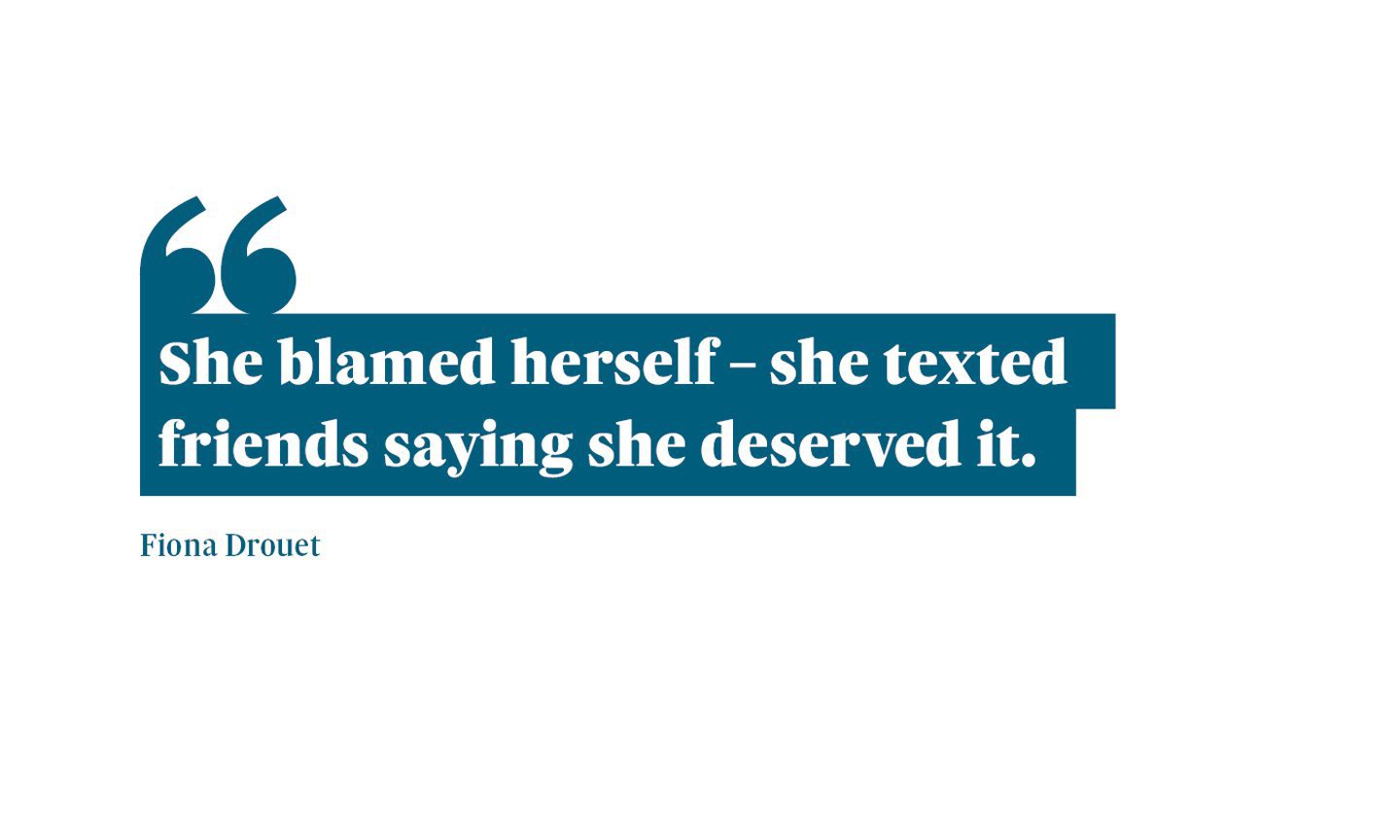
Afterwards, Professor Margaret Ross released a statement on behalf of the university. She said: “Having reviewed the circumstances surrounding Emily’s death, we are satisfied the level of support offered by the university prior to her death was appropriate, based on our knowledge of the circumstances at the time.
“When Emily made contact to discuss the situation with Angus Milligan, we took care to respect her wishes, while seeking to encourage continued dialogue in order to resolve a complex situation.
“Emily’s death was a tragedy that we could not have foreseen based on our contact with her, or any other factors of her life at university.
“Nonetheless, we have since carried out a review of our student support procedures, and where we have identified opportunities we have made changes to enhance the level of support available.”
Meanwhile the abuse and control didn’t stop.
“One of the parts I found most disturbing were these countdown timers he would send her,” said Fiona.
“He’d tell her she had two minutes to get to his room, and say ‘hurry up you c***’ when she was slow or ‘I wait for no one’ if she was late.
“She blamed herself – she texted friends saying she deserved it.”
The letter
On the night she died the catalyst for their argument had been a letter Angus had been using to blackmail Emily.
Supposedly it detailed everything she had been up to at university so far, with a special emphasis on drinking, smoking and sex – what many would consider part of the usual student experience.
Emily was mortified at the thought of her parents reading such a letter.
“Angus had been brandishing it around their halls of residence, so other people knew about this letter too,” said Fiona.
“Their silence only confirmed to Emily that what Angus was saying was right, she was worthless and should be ashamed.”
No one knows exactly what happened on the evening of St Patrick’s Day when Angus visited Emily’s room.
According to CCTV he was only in her flat for a total of four minutes.
By 10pm, she had taken her own life.
The court case
Four years on, at home on the south side of Glasgow, the Drouet family are still learning to adapt to life without their daughter.
Cards clutter up the mantelpiece wishing Emily’s youngest sibling Calvin a happy 14th birthday.
“Birthdays are always emotional,” said Fiona. “I still sign her name on cards.
“It’s like there’s a huge gap that can never be filled. It’s been four years but the agony doesn’t disappear.”
There was no automatic inquiry into Emily’s death, but despite the pain the Drouet’s were in they decided to put their own investigation together by gathering any shred of evidence ready to present to prosecutors.
It was incredibly draining work, but two months to the day that Angus had last visited Emily in her room, he was arrested on five charges of assault, one of abusive and threatening behaviour, one communications offence, and one of culpable and reckless conduct.
Just over a year later the case was brought before Aberdeen Sheriff Court.
Milligan admitted behaving in a threatening or abusive manner towards Emily on two occasions between March 3 and 10 and that he shouted and used abusive and offensive language towards her.
He also admitted to sending messages to her on March 3 and 4, that had offensive and abusive language.
Milligan admitted a further charge of assaulting Emily on March 10 by seizing her by the neck, choking her, pushing her against a desk and slapping her twice on the face.
The other five charges, including one of choking Emily in her room on the night she died, were dropped due to lack of evidence.
Sentencing Milligan at Aberdeen Sheriff Court, Sheriff Malcolm Garden said: “The three charges to which you have pleaded guilty demonstrate a course of conduct sustained over a relatively short time but during which you exhibited a controlling and ultimately violent approach to your relationship.
“The assault charge involves a significant level of violence which resulted in injury.”
Angus avoided jail and instead was ordered to carry out 180 hours of unpaid work (which was later reduced to 120 hours) and told he would be under supervision for one year.
He was also expelled from Aberdeen University.
In July 2023, Emily’s loved ones revealed they were suing Angus in a ‘loss of society’ civil case.
This is when close relatives of someone who has died as a result of the negligence of another person can claim a pay out for the distress they suffered and to compensate for losing the help they would have had if the person had lived.
Fiona said: “This isn’t about money, it is about holding people accountable for their actions.
“It’s about making somebody understand there are consequences when they bully others and they shouldn’t just be allowed to walk away from these actions.”
The judge is currently deciding if too much time has passed since Emily’s death for the action to be allowed under law and a ruling is expected in the coming months.
Continuing the fight
After years of hard work and heartbreak, no one would have blamed Fiona for retreating back home to quietly rebuild her family.
Angus may have been convicted in court, but it would not bring her daughter back.
Yet Fiona couldn’t switch off. In her mind she turned over every failing, every fault and every opportunity which could have made even the slightest difference to Emily’s fate.
It became increasingly clear to Fiona that her daughter’s experiences were far from unique. Young women across Scotland were suffering at the hands of their partners, and, like Emily, felt that they had nowhere to turn.
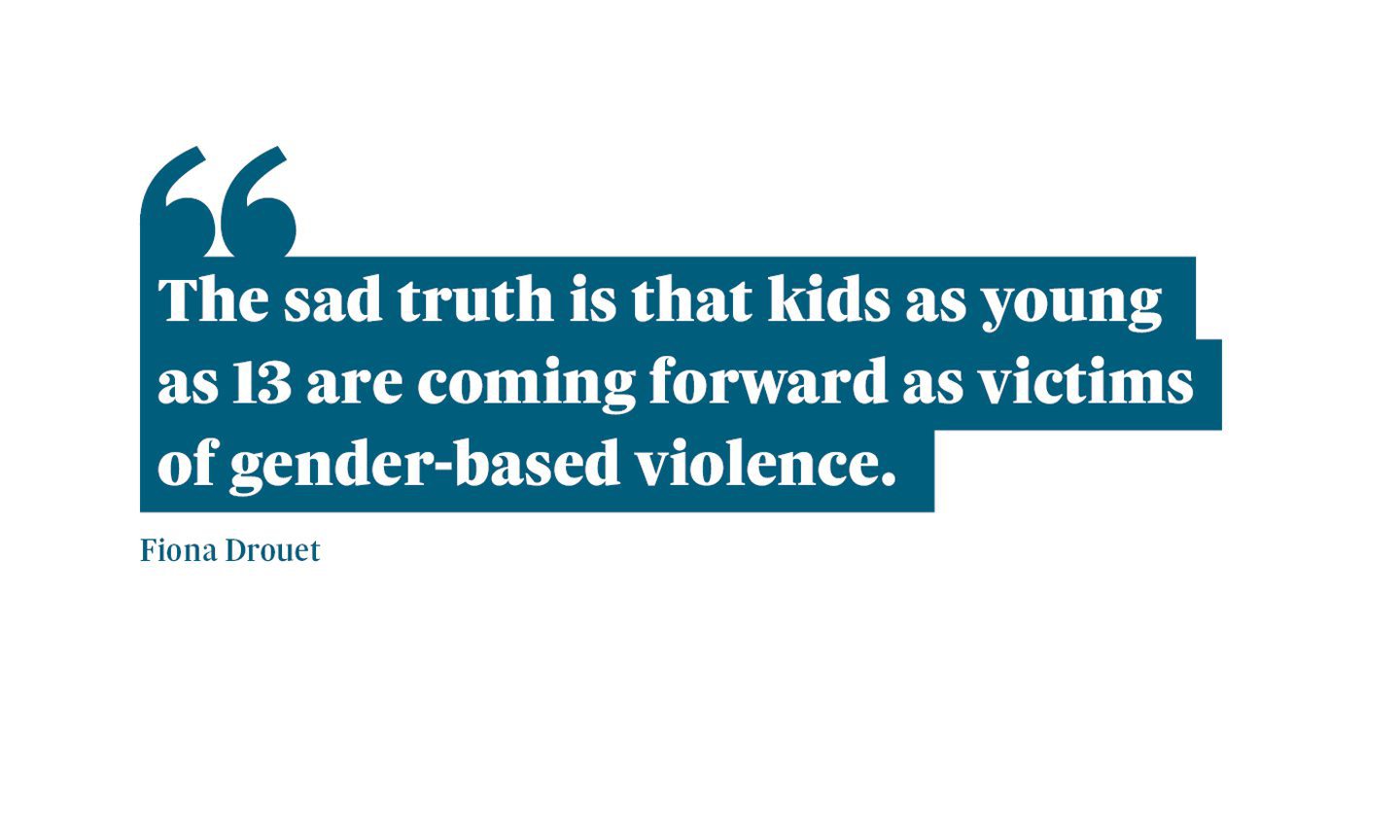
“When you say the phrase ‘domestic abuse’, young girls think it doesn’t apply to them,” said Fiona.
“They imagine marriage, a mortgage, a family… even the term ‘woman’ seems alien when you’re a teenager.
“It means that they don’t associate what’s happening to them with abuse, they don’t realise it’s wrong.
“Women’s Aid feels like a service that not meant for you, it’s for ‘real women’ who are experiencing ‘real’ crimes.
“The sad truth is that kids as young as 13 are coming forward as victims of gender-based violence.”
With this revelation ringing in her ears, Fiona found that she could not sit back and do nothing.
Armed with a list of improvements which could be implemented at colleges and universities around Scotland, she approached the Scottish Government.
“I was ready for push back and just waiting for someone to say ‘well Mrs Drouet we are doing everything we can…’ but they didn’t.
“They said ‘Mrs Drouet, you’re absolutely right – we need to do more.’”
And with that, what began as a desperate campaign to save other young people from Emily’s fate, led to big changes in further-education systems across the country.
Staff training to increase awareness of abuse and coercive control in young people’s relationships has been top of the #EmilyTest agenda.

In addition to this, 150,000 domestic abuse support cards have been handed out to staff members at all colleges and universities across Scotland, containing information about local services which can help young people in trouble.
Designed to be discreetly handed out to students in need, requests for more to be printed have already come rolling in.
More obvious signposts for students include 80,000 stickers developed for communal areas in university halls and dorm rooms, each customised for the individual university or college with ways to spot signs of abuse and how to get help.
Working with Universities Scotland and the Scottish Government, Fiona’s next target with the #EmilyTest campaign is to create a gender-based violence charter which further education institutions can follow, with bronze, silver and gold levels to indicate the level of support available to students at each establishment.
“I said to Emily ‘cover your drink’, I talked about rape and staying safe on the streets at night… but I never once thought about a relationship with sexual control, violence and threats,” Fiona said.
“Having a visible charter like this is a way to signpost parents to be aware of the risks too.”
But of all the work Fiona has done over the last four years, perhaps the most effective of all has been her voice.
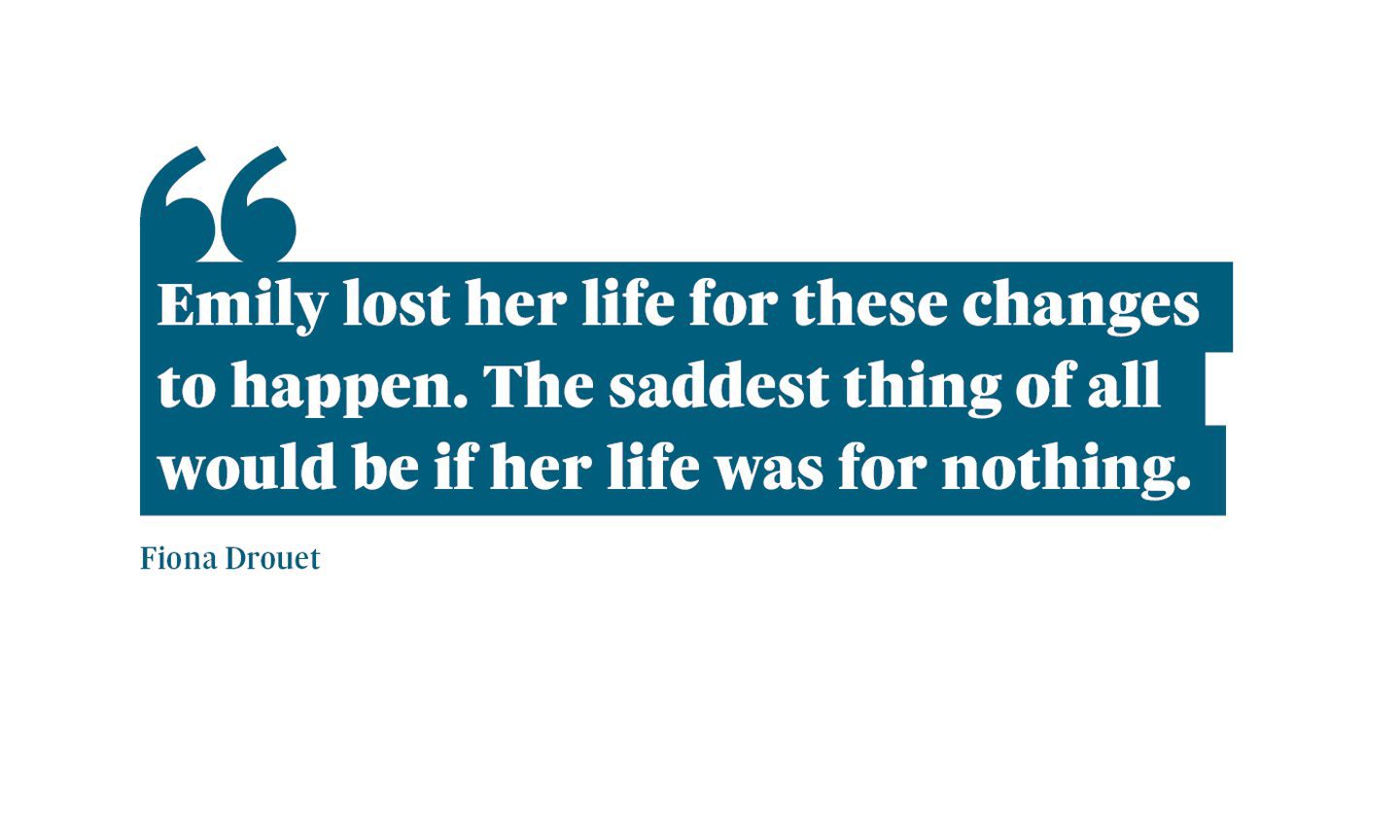
It’s raw and unflinching. She doesn’t gloss over the details of what her daughter suffered at the hands of her abuser, and will forever feel the physical weight of guilt that she somehow was not able to help Emily in her hour of need.
For the last four years Fiona has been travelling round different schools, colleges and universities telling Emily’s story.
There is no jargon here; no complicated statistics and no pressure to put your hand up in front of the class.
“I don’t say ‘intimate images’,” said Fiona, “I say ‘dick pic’. That’s what it is after all, and that’s the language that young people understand.
“In every single school I’ve visited I’ve had someone approach me quietly and say ‘I was treated like this’ or ‘I’m worried about my friend…’”
“I speak to kids from fourth year and above. Many of them don’t know what’s right and wrong in a healthy relationship, they don’t know it’s okay to have standards.
“And the sad truth is that children as young as 13 are coming forward as victims.
“Emily was driven to suicide. I’ll always say that. It’s not something she had lots of time to consider. She never searched for it on her phone or laptop. She had no mental health issues.
“Abuse is slow and insidious. And it’s affecting young people.
“Emily lost her life for these changes to happen. The saddest thing of all would be if her life was for nothing.”




